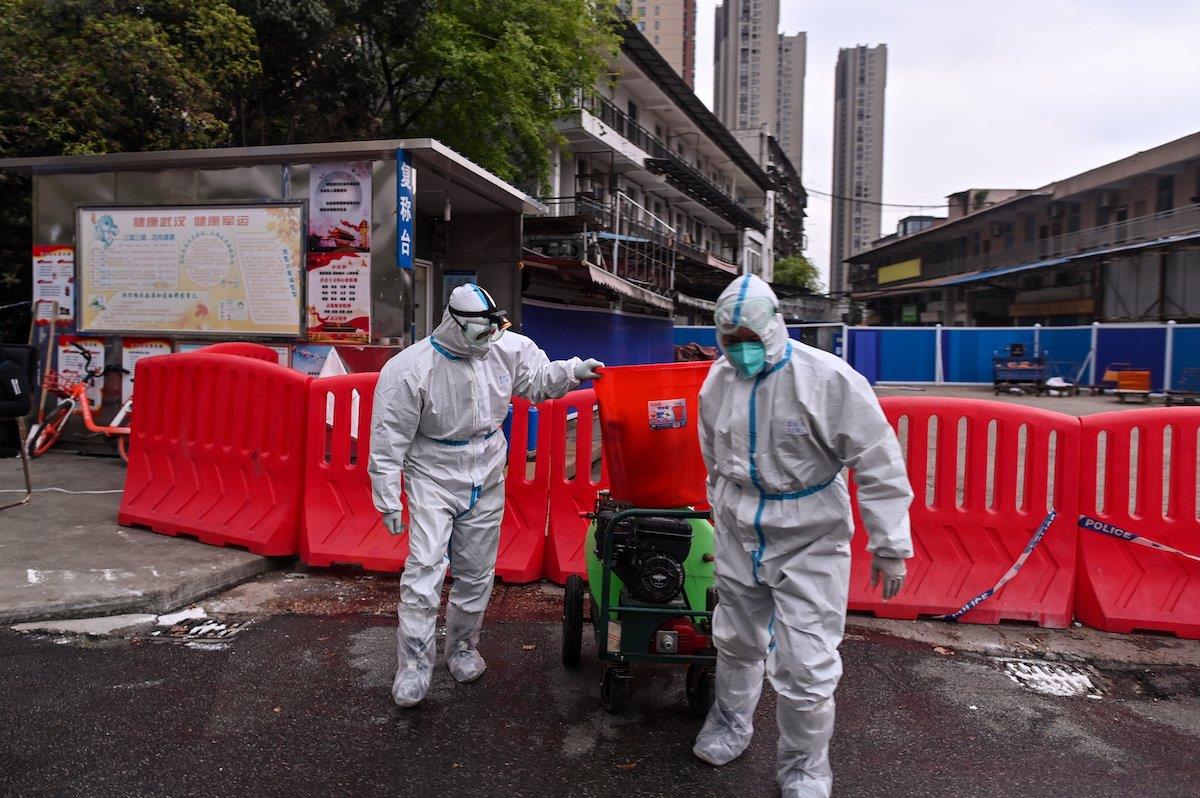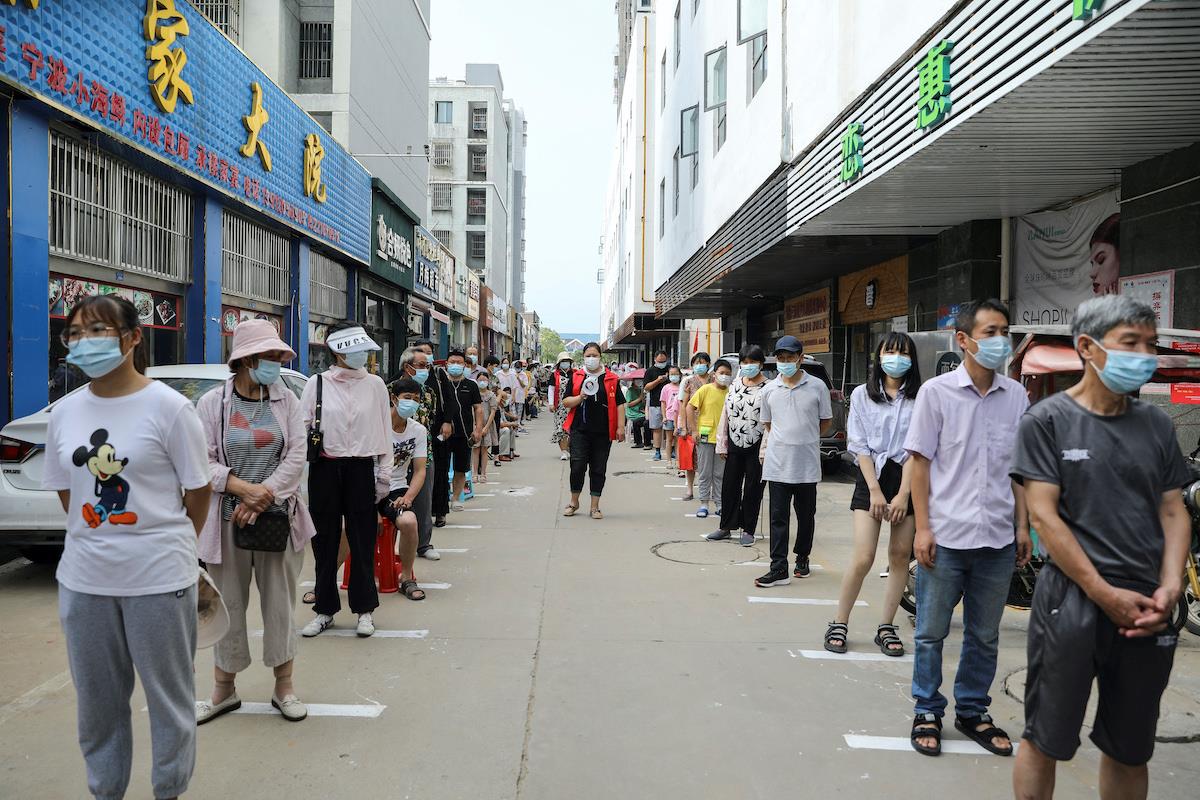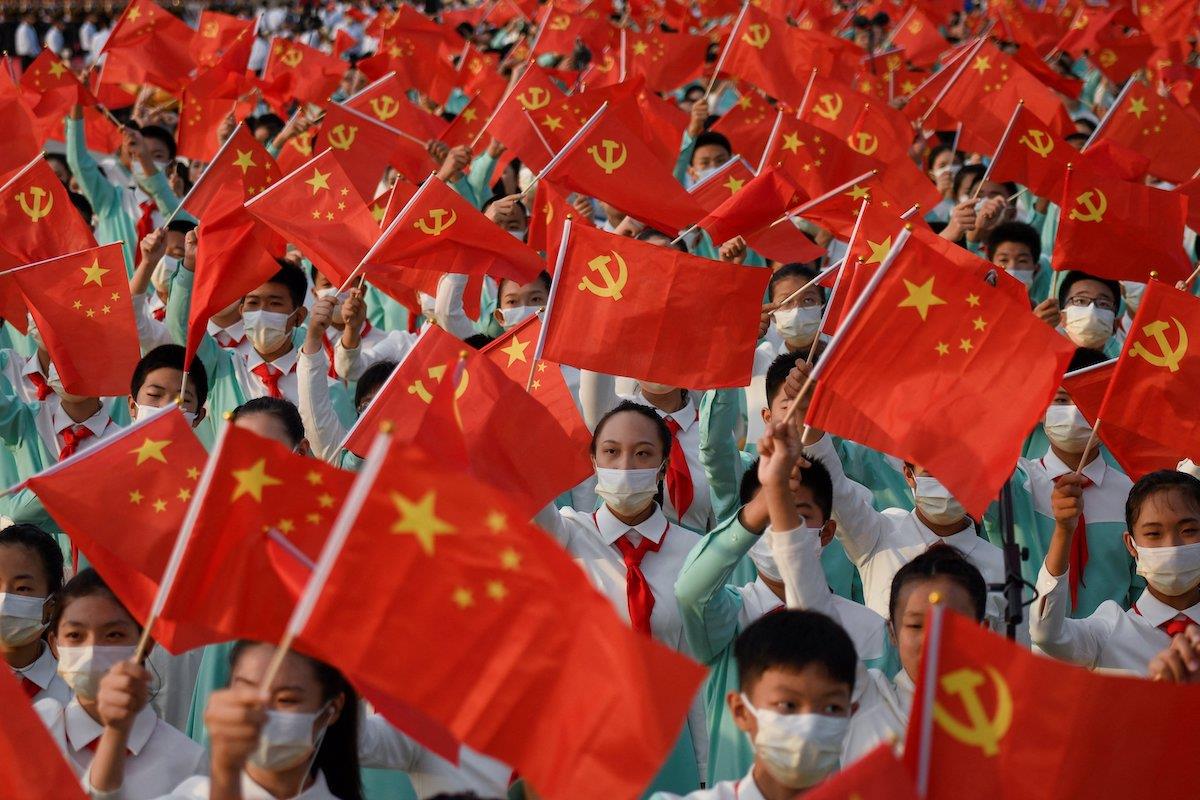(MENAFN- Asia Times) When Washington's intelligence agencies were tasked with determining the origins of COVID-19 a few months ago, there was reason to hope they would succeed. Rumor had it they were using supercomputers to dig out and analyze previously unnoticed evidence.
The report they filed on August 24 dashed those hopes. According to the two-page unclassified summary , the agencies couldn't agree on a conclusion.
Four believed the virus originated in an animal, but they had low confidence in their belief. One agency – some guess the FBI – was moderately confident a laboratory incident of some sort was to blame. Three others didn't think there was enough evidence to support either theory.
They all agreed a definitive conclusion would require China's cooperation.“Beijing, however, continues to hinder the global investigation, resist sharing information and blame other countries, including the United States,” the unclassified summary said.
It's a disappointing report and there are those in Washington who think the agencies need to work the problem harder. Knowing how the novel coronavirus started and spread could be critical to controlling the next pandemic – and there will be a next pandemic someday.
Nobody, though, doubts the report is right about China's obfuscation.
For some time now, China has been suppressing information that could help pinpoint Covid's origins. Ironically, its obstructionism has lent credence to the lab-incident theory, which is the one that would, if true, speak the worst about China.
For if the animal theory were true, the Chinese would have no reason to deny foreign researchers information – would they?

File photo taken on March 30, 2020 shows workers wearing protective suits walking next to the Huanan Seafood Wholesale Market in Wuhan, in China's central Hubei province. Photo: AFP / Hector Retamal
Actually, they might. China's authorities have tried for years to stamp out wet markets where wild animals are sold for food. If the disease got its start in a wet market, Beijing would be embarrassed.
There are other possible explanations for the lack of cooperation. Perhaps they just don't know how Covid-19 started and fear what an investigation by foreigners might turn up. (If so, the world must hope they're doing an honest and thorough investigation on their own.)
It's also possible the Chinese are truly convinced the disease came to China from a foreign country, maybe even a US lab, as they keep suggesting. If that's the case, though, what harm would it do China to let foreign researchers see the logbooks, clinical samples and other data they've asked for?
(And if that's the case, they might try offering a little evidence for the supposed non-Chinese origin.)
Amid all these what-ifs, one thing seems clear: In concealing information about Covid-19, China is saying something about itself.
Assume, for the sake of argument, a likely worst-case scenario for China. Assume China cooperated with international investigators, who found proof Chinese lab researchers had accidentally unleashed Covid-19 while doing“gain of function” research on the underlying virus.
What's the worst that could happen to China if this happened? It would be subjected to international criticism. On the battlefield of world public opinion, it would lose a skirmish.
By concealing information that could shed light on Covid's origins, then, China is essentially saying that avoiding international criticism is more important to it than helping the world prevent future pandemics – pandemics that could kill many Chinese people, wherever they began.

People maintain social distancing as they queue to receive nucleic acid tests for Covid-19 in Huaian in China's eastern Jiangsu province on August 2, 2021. Photo: AFP
What we are learning about this emerging superpower, then, is how thin-skinned it is. The US is criticized all the time, even by its allies. China refuses to accept criticism. For countries that must deal with China as an adversary, or a trading partner, or both, this is an important, and worrying, thing to understand.
No country likes to be criticized, but China seems especially touchy. Perhaps this comes with one-party rule. Democratic governments are used to being criticized; autocracies aren't.
It's also possible China's 19th-century history of being maltreated by Western imperialists has left the country hypersensitive to how it's perceived internationally. I got a taste of how sensitive in 1997, when I was invited to spend a few days lecturing at a provincial Chinese university.
In every session, the students, who were bright and engaging and generally well-informed, asked the same question: Why was the Western media so critical of China?
The question puzzled me. As the leader at the time of an American media company's editorial operations in Asia, I was familiar with Western media coverage of China. At that time, in 1997, I considered it generally balanced. Some of the coverage was positive, some negative, and most neutral.
The students, it seemed to me, were unhappy that any of it was negative. Their attitude seemed much like that of China's government today: If you can't say something nice about us, don't say anything at all.
Part of how I responded to the students' question seemed to puzzle them as much as the question puzzled me. In democracies, I said, the press plays a watchdog role. We cover all governments with a critical eye, our own and those of other countries.
In other words, don't take it personally.

Students wave flags of China and the Communist Party of China before celebrations in Beijing on July 1, 2021, to mark the 100th anniversary of the founding of the Communist Party of China. Photo: AFP / Wang Zhao
China does take criticism personally, though. When Australia called for an independent investigation of Covid's origins last year, China slapped stiff tariffs on some Australian products. China's ambassador to Canberra even suggested boycotting Australian products.
China didn't call these measures sanctions, but that's effectively what they were. Washington uses – some would say overuses – sanctions to deter what it perceives as human-rights violations. Beijing has now started to use the equivalent of sanctions to send a different message: Those who wish to trade with China should keep their mouths shut.
America's farmers and ranchers, who send more than 20% of their exports to China, must wonder whether that message will someday be applied to them.
Former longtime Wall Street Journal Asia correspondent and editor Urban Lehner is editor emeritus of DTN/The Progressive Farmer. This article, originally published September 20 by that news organization and now republished by Asia Times with permission, is © Copyright 2021 DTN/The Progressive Farmer. All rights reserved.
MENAFN21092021000159011032ID1102834161